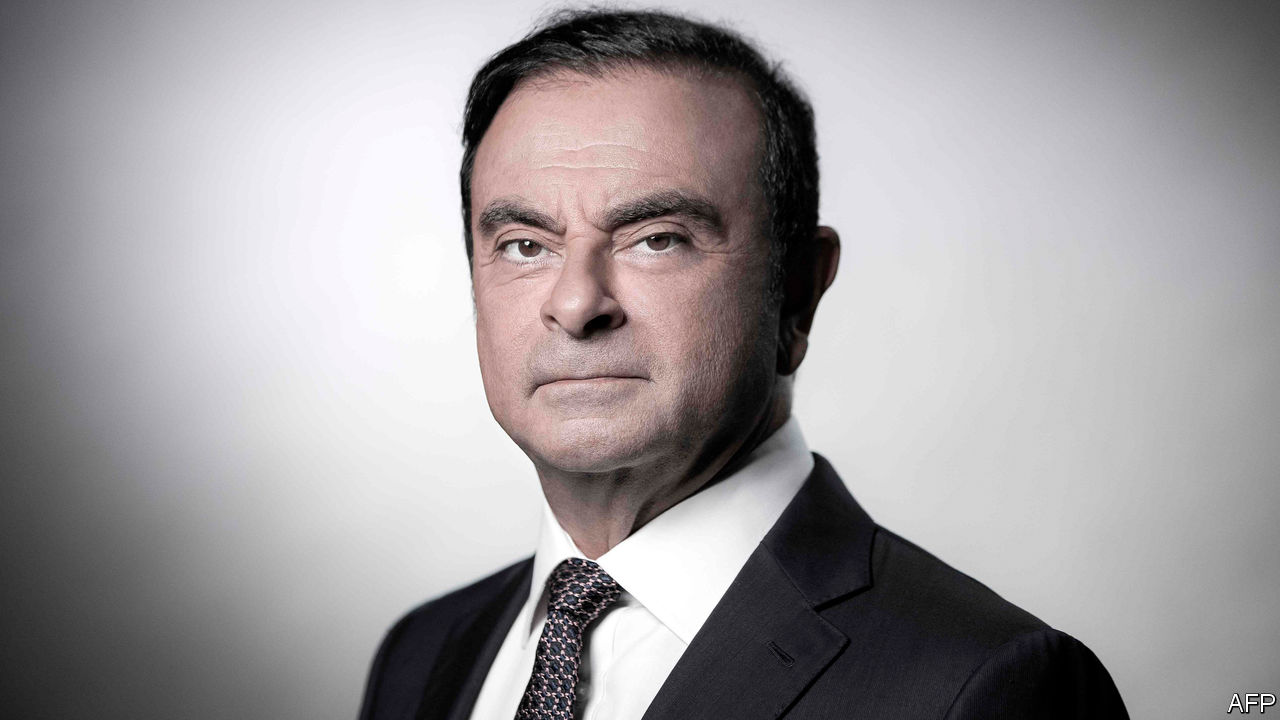Entente non-cordiale
Carlos Ghosn’s car alliance is still in limbo
The former boss of Renault and Nissan dismisses his legal team as his replacements discuss the future

CARLOS GHOSN’s long sojourn at the top of the car industry ended suddenly when Japanese prosecutors boarded his plane in Tokyo last November to detain him on charges of financial misconduct. Dismissed soon afterwards as chairman of Nissan and Mitsubishi, he has since been replaced as chief executive and chairman of Renault, the third partner in an alliance that is the world’s biggest carmaker.
Mr Ghosn protests his innocence of under-reporting his pay and shifting potential trading losses from personal foreign-exchange derivatives contracts to Nissan during the financial crisis. His chances of acquittal in a country where the conviction rate is 99% may have lengthened further. On February 13th Mr Ghosn, who has occupied a prison cell since his detention, dismissed his legal team and appointed new Japanese lawyers to represent him. The reasons are unclear—Mr Ghosn may be unhappy that his previous lawyers had not secured his release on bail, or his counsel may have doubted their ability to win his case when it comes to trial later this year.
Renault initially gave Mr Ghosn’s financial activities as its own boss a clean bill of health, and stood by him. Many of its executives may have privately agreed with his claim that Nissan’s bosses wanted to take him out to prevent his plans for a French-dominated merger to replace the looser alliance structure. Nissan executives resent that Renault owns a controlling 43.4% in the Japanese firm but Nissan has only a non-voting 15% stake in Renault.
Now Renault appears to have uncovered suspect activity. It has asked French authorities to investigate Mr Ghosn for benefiting from a sponsorship deal between the carmaker and the palace of Versailles, which he used as the venue for his lavish wedding. Mr Ghosn says it was an error and that he will repay €50,000 ($56,500) to Renault. On February 13th Renault cancelled deferred pay to Mr Ghosn and a non-compete deal together worth about €30m.
Relations between Renault and its Japanese partner remain in the deep freeze. The French firm is livid at the way Nissan has handled the investigation of Mr Ghosn, especially its refusal for a long while to share any details of his alleged misdeeds. But both parties accept that relations must be revived, and quickly, as joint decisions on investments are required to keep the alliance on track as car markets around the world start to weaken. Poor results at Nissan, announced on February 12th, underline the necessity of making up. As well as revealing an $84m charge linked to Mr Ghosn’s compensation, it said that margins and profits had drooped.
Jean-Dominique Senard, Renault’s new chairman, is in Japan this week to meet Hiroto Saikawa, Nissan’s boss, to discuss the alliance’s future. Both realise they are stuck with each other. Unwinding a partnership built over nearly two decades would be fiendishly hard. Neither company looks strong enough to survive alone in the competitive mass market.
But resolving issues such as who should become chairman of Nissan, and who should lead the alliance, will not make for easy compromise. France’s government, Renault’s biggest shareholder, wants Mr Senard to assume the latter role, to keep Nissan firmly under French control. Nissan, for its part, has said that its aim is to rebalance in its favour an alliance to which it contributes the bulk of profits. Neither the future for Mr Ghosn nor for the alliance he created is getting any clearer.
0 comments:
Publicar un comentario